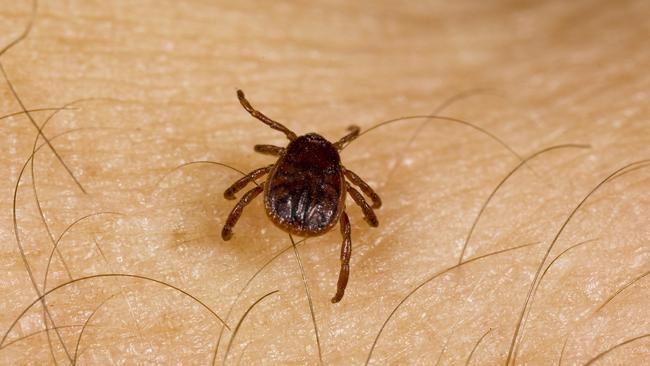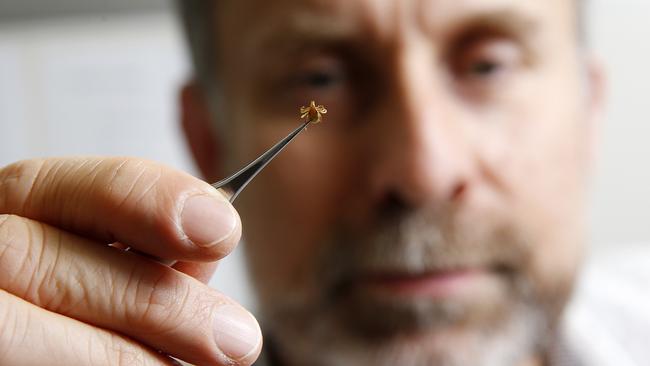Northern beaches hot spot for meat allergy caused by ticks
A potentially fatal allergy is being spread by ticks on the northern beaches, one of the worst affected areas in the world.

Manly
Don't miss out on the headlines from Manly. Followed categories will be added to My News.
- Boy suffers 30 tick bites in northern beaches park
- Help us say family sick from tick bites
- German clinic offers help to Aussies with Lyme disease
More than 1000 people on the northern beaches are living with a potentially life-threatening meat allergy caused by a tick bite.
The peninsula is a hot spot for sufferers, according to Clinical Associate Professor Sheryl van Nunen, who first discovered the link between tick bites and meat allergies in 2007.
“Meat allergies were rare 20 years ago,” she said. “But today there are more ticks, more people and more exposure to ticks.”
Ms van Nunen said admissions are so frequent at Mona Vale Hospital doctors now treat anyone admitted with a middle of the night anaphylaxis, as a mammalian meat allergy, until proven otherwise.

Unlike traditional food allergies MMA can take months to kick in following a bite from a tick which has previously fed on another mammal, other than human. It has a delayed reaction of between two and 10 hours after eating meat.
Allergic symptoms vary, from hives, to gastrointestinal pain and anaphylaxis.
Ms Van Nunen said while, some patients have found over time the allergy has lessened, she said that only happens if they manage to avoid further tick bites.
“I’ve even had patients move interstate to avoid further tick bites,” she said.

Ms van Nunen, an allergy specialist, said the increase in bandicoots, which hosts the ticks, could be a factor in the increase of tick bites.
She said staff at Mona Vale Hospital are currently researching how best to remove ticks and what animals are harbouring them.
But, however people come into contact with ticks, having a meat allergy can seriously impact on a person’s life, she said.
“It’s one problem if you can’t eat meat, but if you also can’t eat meat products it can be a difficult and dangerous life,” said Ms van Nunen, who has seen a patient admitted with anaphylaxis after she ate a vegan meal, which contained butter.

Ms van Nunen said preventing tick bites were important, as was how you removed them, in avoiding the meat allergy.
Reduce your risk of developing an allergy:
■ Ideally spray tick with ether containing aerosol spray (such as Wart Off Freeze available over the counter at pharmacies) to kill it and wait for it to drop off
■ Don’t use tweezers, or pull or push on tick, this may cause it to release toxins from saliva sacks
■ Avoid scratching areas you can’t see
For more information go to tiara.org.au

Fact Box
Tick bites can cause mild to life-threatening allergic reactions to mammalian meats such as beef, pork, lamb, kangaroo, goat and venison.
Some people are so sensitive to alpha gal, they react to mammal products, particularly, their milks and gelatine. Any product derived from mammals may cause allergic reactions, making avoidance very difficult as the allergen may be found in a wide range of agents used in medical treatments, as well as in foods.
Tick bites may result in allergic reactions to the ticks themselves, including anaphylaxis, and, rarely, there have been fatalities.
Crucially, people who suffer an anaphylactic reaction to a tick only do so when the tick is disturbed.
Swellings at the site of a tick bite can occur before either mammalian meat allergy or tick anaphylaxis appears.
Do you have a meat allergy? Contact julie.cross@news.com.au with your story.



